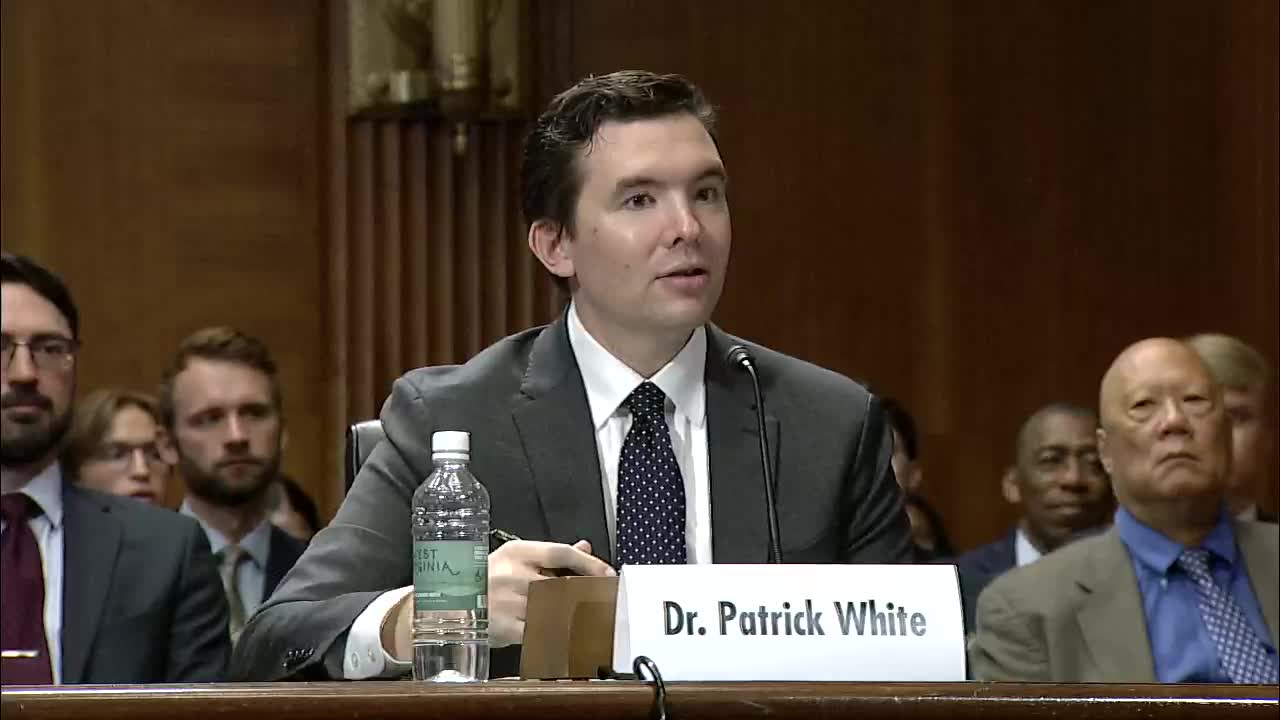Fusion Energy Race Heats Up Amid Global Competition
September 19, 2024 | Energy and Natural Resources: Senate Committee, Standing Committees - House & Senate, Congressional Hearings Compilation
This article was created by AI summarizing key points discussed. AI makes mistakes, so for full details and context, please refer to the video of the full meeting. Please report any errors so we can fix them. Report an error »

In a recent government meeting focused on the future of clean energy, discussions highlighted the critical role of fusion energy in achieving global energy goals. Participants emphasized the necessity of diverse energy sources, including fusion, to meet the increasing demand for clean energy worldwide. The conversation underscored the importance of competition in fostering innovation, with experts advocating for international collaboration among scientists to accelerate advancements in fusion technology.
A key point raised was the geopolitical implications of fusion energy development, particularly concerning supply chains. Experts warned that the U.S. must secure its position in the fusion market to prevent countries like China from dominating the field, similar to their current lead in electric vehicle battery production. This urgency was framed as a national security issue, with calls for strategic partnerships among allies to ensure a robust supply chain.
Cost considerations were also central to the discussions, with participants comparing fusion energy to traditional nuclear fission. While fission plants are currently more expensive, proponents of fusion claimed that advancements could lead to significantly lower costs, potentially as low as one cent per kilowatt hour if mass production is achieved. This could revolutionize the energy market, making fusion a competitive option for consumers.
Safety concerns were addressed, with experts noting that fusion technology, which utilizes materials like deuterium and helium-3, poses fewer risks than fission, which relies on uranium and produces long-lived radioactive waste. However, they acknowledged that safety protocols must be established to manage any radioactive materials generated during fusion processes.
California's leadership in fusion research was highlighted, with facilities like the National Ignition Facility and General Atomics playing pivotal roles in advancing fusion science. The meeting concluded with a call for sustained funding and strategic planning to capitalize on recent successes in fusion research and move towards commercialization. Participants expressed optimism about the potential of fusion energy to contribute significantly to a cleaner, more sustainable energy future.
A key point raised was the geopolitical implications of fusion energy development, particularly concerning supply chains. Experts warned that the U.S. must secure its position in the fusion market to prevent countries like China from dominating the field, similar to their current lead in electric vehicle battery production. This urgency was framed as a national security issue, with calls for strategic partnerships among allies to ensure a robust supply chain.
Cost considerations were also central to the discussions, with participants comparing fusion energy to traditional nuclear fission. While fission plants are currently more expensive, proponents of fusion claimed that advancements could lead to significantly lower costs, potentially as low as one cent per kilowatt hour if mass production is achieved. This could revolutionize the energy market, making fusion a competitive option for consumers.
Safety concerns were addressed, with experts noting that fusion technology, which utilizes materials like deuterium and helium-3, poses fewer risks than fission, which relies on uranium and produces long-lived radioactive waste. However, they acknowledged that safety protocols must be established to manage any radioactive materials generated during fusion processes.
California's leadership in fusion research was highlighted, with facilities like the National Ignition Facility and General Atomics playing pivotal roles in advancing fusion science. The meeting concluded with a call for sustained funding and strategic planning to capitalize on recent successes in fusion research and move towards commercialization. Participants expressed optimism about the potential of fusion energy to contribute significantly to a cleaner, more sustainable energy future.
View full meeting
This article is based on a recent meeting—watch the full video and explore the complete transcript for deeper insights into the discussion.
View full meeting